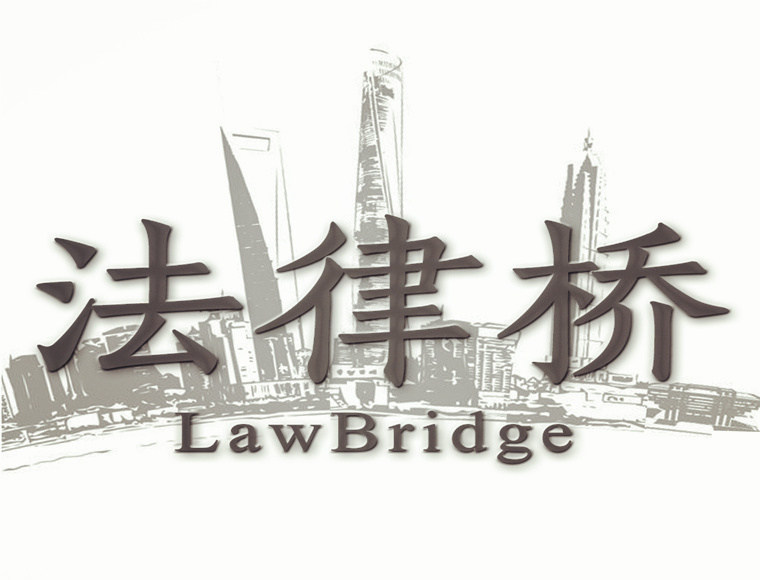Seven questions and answers on changing managers of private equity funds
The Asset Management Association of China (hereinafter referred to as the "Association") issued "Private Investment Fund Filing Guidelines" No. 1-3 and the corresponding material list on September 28, 2023. Since both Guidelines No. 1 and 2 integrate and refine existing rules and contain less new content compared with previous regulations, we will not introduce them in a separate article (the specific contents of Guidelines No. 1-2 will be published in 2023. (described in the private equity regulatory developments). The "Private Investment Fund Filing Guidelines No. 3 - Change of Managers of Private Equity Funds" (hereinafter referred to as "Guidelines No. 3") are the first self-regulatory rules issued by the Association for the change of managers of private equity funds, and the supporting material list explains the changes. All materials required by the administrator are clearly specified. This article intends to explain matters related to the change of managers of private equity funds in the form of questions and answers, so as to provide a useful reference for the majority of private equity funds and their managers, as well as fund investors.
The first question: Who is the operating entity of the private equity fund change manager? Old manager? New manager? Or a fund investor?
Answer: According to Guideline No. 3, the original manager and new manager of a private equity fund should clarify the procedures for changing managers, division of responsibilities, transfer of rights and obligations, etc., and properly dispose of fund assets. In other words, new and old managers should work together to complete the private equity fund manager change process.
Second question: How many fund investors are required to agree to change the manager of a private equity fund?
Answer: According to Guideline No. 3, the change of manager of a private equity fund must be approved by investors holding more than two-thirds of the fund shares. Although it is not clear here whether the fund shares held by investors are "subscribed" or "paid-in", based on the provisions of Article 4, Paragraph 2 (2) of Guideline No. 3, "The fund contract does not stipulate the change of the manager." Procedures shall be adopted in accordance with the decision-making mechanism stipulated in the contract, and resolutions shall be made by convening a general meeting of fund shareholders, a meeting of partners or a meeting of shareholders, etc.... with the consent of investors whose voting rights account for more than two-thirds of the fund shares.” According to Our past experience is that most fund contracts stipulate that the exercise of voting rights by fund investors is based on the fund shares corresponding to the investors’ paid-in capital contributions. Therefore, we tend to believe that the change of manager of a private equity fund must be based on holding one-third of the paid-in fund shares. It can only be implemented with the consent of two or more investors. Of course, if the fund contract clearly stipulates that the exercise of voting rights by fund investors is based on their subscribed capital contributions, such agreement should be followed.
Question 3: What requirements do new managers need to meet?
Answer: According to Guideline No. 3, in addition to having the ability to continue to develop business, the new manager must not be unable to serve as a fund manager as stipulated in the "Private Investment Fund Registration and Filing Measures" (hereinafter referred to as the "Registration and Filing Measures"), and must It complies with the principles of professional operation (the business type is consistent with the fund type) and must also have funds under management (except where the original manager and the new manager are controlled by the same actual controller). It can be seen from this regulation that unless the new manager is a related manager of the original manager, it cannot be a "newly established" manager. In other words, the private equity fund manager is prohibited from issuing the first fund product from the original manager. Those who “take over” private equity funds.
Question 4: What materials are needed to change the manager of a private equity fund?
Answer: According to Guideline No. 3 and the list of changed materials, the materials required for registration by private equity fund managers include:
1. Reasons and rationale for changing the manager;
2. An agreement signed by the new and old managers, fund investors, and custodians (if any) agreeing to change the manager, or a resolution approved by the fund unit holders meeting/partners meeting/shareholders meeting agreeing to change the manager (applicable The situation where the original manager loses contact and is deregistered by the association);
3. Legal document terminating the original fund contract or entrusted management agreement;
4. New fund contract or entrusted management agreement;
5. The opinion of the fund custodian (if any) on whether the new manager complies with the provisions of Article 5 of Guideline No. 3 (i.e., the requirements that the new manager should meet);
6. Changed industrial and commercial registration information (applicable to changes in industrial and commercial registration for partnership and corporate private equity funds);
7. Information change commitment letter;
8. Notarial certificate (if applicable): Applicable to the situation where the original manager has been deregistered by the association due to loss of contact, and investors have not reached an agreement on changing the manager; investors should make a fund share holder meeting/partner meeting /The shareholders' meeting resolves to change the manager, and the resolution to change the manager must be notarized by a notary authority;
9. Legal Opinion (if applicable): Applicable to situations where the original manager has been deregistered by the association due to loss of contact, and investors have not reached an agreement on changing the manager; investors should make a fund share holder meeting/partner meeting If a meeting/shareholders meeting resolves to change the manager, a legal opinion must be issued by a law firm registered with the China Securities Regulatory Commission on the legality and validity of the convening and resolution procedures of the fund unit holders' meeting, partners' meeting or shareholders' meeting, etc. issue clear concluding opinions;
10. Effective judgment made by judicial authorities or arbitration institutions (if applicable): If the original manager does not agree to the change of manager, or investors cannot reach a valid resolution, agreement or settlement plan for the change of private equity fund manager, a judicial decision should be provided. An effective ruling made by the agency on the change of private equity fund manager; we understand that this provision is a clarification of the "private equity fund manager is unable to achieve the goal in accordance with the provisions of the preceding paragraph" as mentioned in the second paragraph of Article 56 [1] of the "Registration and Filing Measures" A valid resolution, agreement or treatment plan..." further explains, that is: "Unable to reach a valid resolution, agreement or treatment plan" is divided into two situations, one is that the original manager does not agree to change the manager, and the other is that the original manager does not agree to change the manager It is the investors who cannot agree on a change of manager;
11. Minority investor rights protection mechanism (if applicable): If a private equity fund has completed the manager change process, but there are still a few investors who have not signed a fund contract with the new manager, the new manager should establish a minority investor rights protection mechanism.
Question 5: Under what circumstances does the change of manager require the new manager to perform the change procedures?
Answer: According to Guideline No. 3, when the original manager loses the qualification as a market entity (including dissolution, cancellation, revocation, revocation of business license, order to close down, or is declared bankrupt), loses the registration qualification as a manager (cancels from the association, revokes registration), loses If the investor, fund custodian or other parties to the fund contract are unable to obtain effective contact with the original manager, or other special circumstances occur that prevent them from submitting a change application to the association, the new manager must complete the change procedures with the association. . Except for the above circumstances, the original manager shall complete the change procedures to the association within 10 working days from the date of change, submit materials as required and be confirmed by the new manager.
Question 6: What are the circumstances under which the association refuses to go through the procedures for changing the manager?
Answer: According to Guideline No. 3, the situations in which the association refuses to handle the change of administrator can be roughly divided into the following categories:
1. Legality and compliance issues: There are situations where relevant laws and regulations clearly prohibit filing (i.e., the situation specified in Article 41, Paragraph 1 [2] of the "Registration and Filing Measures"), or the private equity fund is suspected of major violations of laws and regulations;
2. Operational issues: Violates professional operating principles, or is a private equity fund of other types, or has entered liquidation procedures;
3. Regulatory agency requirements.
Question 7: Is the establishment of a professional institution or liquidation group by a private equity fund to perform fund management duties a change of fund manager?
Answer: According to Guideline No. 3, if a private equity fund establishes a professional institution or liquidation team to perform management duties in accordance with relevant laws, regulations and fund contracts, it does not constitute a change of fund manager and does not need to perform the change of manager procedures. Professional institutions or liquidation groups shall promptly report to the Association their composition, relevant meeting resolutions, property disposal plans, fund liquidation reports and relevant litigation and arbitration situations, etc. We understand that this provision of Guideline No. 3 is a further clarification of Article 34[3] of the "Regulations on the Supervision and Administration of Private Equity Investment Funds" and Article 58[4] of the "Registration and Filing Measures".
Conclusion
We understand that Guideline No. 3 and the supporting materials list are mainly based on the "Private Equity Regulations" and "Registration and Filing Measures" introduced this year. They are for the majority of private equity funds and their managers, as well as private equity fund investors, in terms of changing fund managers practical guide. According to the association’s statement, it will cooperate with the revision and release of departmental regulations of the China Securities Regulatory Commission and simultaneously improve the corresponding self-regulatory rules. Our team will always pay attention to relevant regulatory developments and introduce or interpret the new policies in a timely manner, so stay tuned.
[1] Article 56 of the "Registration and Filing Measures for Private Equity Investment Funds" If the manager of a private equity fund intends to change, the change procedure shall be performed in accordance with relevant regulations and the contract, or an effective solution shall be reached in accordance with the decision-making mechanism stipulated in the contract.
If it is impossible to reach an effective resolution, agreement or settlement plan in accordance with the provisions of the preceding paragraph regarding the change of private equity fund manager, a legally effective judgment, ruling or arbitration award made by a judicial authority or arbitration institution on the change of private equity fund manager shall be submitted to the Association. Go through the change procedures in accordance with relevant legal documents.
[2] Article 41, Paragraph 1 of the "Registration and Filing Measures for Private Equity Investment Funds" If any of the following circumstances occurs, the association will not handle the registration of private equity funds and explain the reasons:
(1) Engage in or covertly engage in credit business, or directly invest in credit assets, unless otherwise stipulated by the China Securities Regulatory Commission or the Association;
(2) Engage in commercial private lending activities through entrusted loans, trust loans, etc.;
(3) Private equity funds engage in lending activities in disguise by setting up unconditional rigid repurchase arrangements, and fund income is not linked to the operating performance or income of the investment target;
(4) Assets invested in factoring assets, financial leasing assets, pawn assets and other businesses that conflict with private equity funds, assets receiving (benefiting) rights, and equity investments in companies engaged in the above businesses;
(5) Invest in projects that are prohibited or restricted by the state, and projects that are not in compliance with national industrial policies, environmental protection policies, and land management policies;
(6) Engage indirectly or in disguised form in the activities specified in items 1 to 5 of this paragraph through investment companies, partnerships, asset management products, etc.;
(7) Investment companies and partnerships that are not private equity funds specified in Article 2, Paragraph 2 of these Measures, and are not established and operated in the form of funds;
(8) Employee stock ownership plans and private equity fund managers’ employee follow-up investment platforms established for the purpose of employee incentives;
(9) Other circumstances specified by the China Securities Regulatory Commission and the Association.
[3] Article 34 of the "Regulations on the Supervision and Administration of Private Equity Investment Funds" If the private equity fund cannot operate normally or is terminated due to the inability of the private equity fund manager to perform its duties normally or the occurrence of major risks or other circumstances, the matter shall be determined by the fund contract or relevant regulations. Other professional institutions that exercise the power to replace private equity fund managers, modify or terminate fund contracts in advance, and organize the liquidation of private equity funds.
[4] Article 58 of the "Registration and Filing Measures for Private Equity Investment Funds" The private equity fund manager is unable to perform or is lazy in performing its duties due to circumstances such as loss of contact, cancellation of private equity fund manager registration, or occurrence of major risks, resulting in the private equity fund being unable to exit normally. , Private equity fund managers, private equity fund custodians, fund share holders’ meetings, or investors holding more than a certain share ratio may establish special agencies or entrust accounting firms, law firms and other intermediary service agencies in accordance with the fund contract. Properly dispose of fund assets, protect the legitimate rights and interests of investors, and exercise the following powers:
(1) Clean up and verify the assets of private equity funds;
(2) Formulate and implement liquidation and exit plans;
(3) Manage, dispose and distribute fund assets;
(4) Fulfill legal procedures such as dissolution, liquidation, and bankruptcy in accordance with the law;
(5) Represent private equity funds in dispute resolution;
(6) Other powers stipulated by the China Securities Regulatory Commission, the Association or agreed in the fund contract.
If a private equity fund withdraws through the method specified in the preceding paragraph, it shall promptly report to the association the composition of the special agency, relevant meeting resolutions, property disposal plans, fund liquidation reports, and relevant litigation and arbitration situations, etc.
Authors
Lawyer Yang Chunbao

First class lawyer. Senior partner of Dacheng (Shanghai) Law Firm, leader of the private equity and investment fund professional group, leader of the TMT industry group, and deputy director of the Dacheng China Technology, Culture, Leisure and Entertainment Professional Committee. Member of the International Bar Association and member of Shanghai’s foreign-related legal talent pool. Bachelor of Laws from Fudan University (1992), Master of Laws from University of Technology Sydney (2001), Master of Laws from East China University of Political Science and Law (2001). He has been practicing law for 27 years. Since 2004, he has been specially recommended or commented by Asia Pacific Legal 500 and Asia Law Profiles many times. Since 2016, he has been continuously selected as one of the "A-List Legal Elites - One Hundred Outstanding Chinese Business Lawyers" by China Business Law Journal, an internationally renowned legal media. ", won the title of "China Corporate Law Expert of the Year" by Leaders in Law - 2021 GlobalAwards, won many professional awards such as Lawyer Monthly and Finance Monthly's "China TMT Lawyer Award" and "China M&A Lawyer Award", and was continuously shortlisted for the "Australia-China Outstanding Annual Award" Alumni Award". Attorney Yang is a part-time professor at East China University of Science and Technology Law School, a part-time tutor at Fudan University Law School, a part-time graduate tutor at East China University of Political Science and Law, a lecturer at Shanghai Jiao Tong University’s private equity CEO class, a lecturer at the Shanghai Municipal Commission of Commerce’s Transnational Management Talent Training Course, and has served as an independent director of a listed company. Qualifications: He is also a member of the legal advisory group for the restructuring of state-owned enterprises in Shanghai. Published 16 monographs on investment and financing law (including reprints). Attorney Yang’s practice areas are: companies, investments, mergers and acquisitions and funds, capital markets, TMT, real estate and construction projects, as well as dispute resolution in the above fields. Email: chambers.yang@dentons.cn
Lawyer Sunzhen

Partner of Dacheng (Shanghai) Law Firm. Before practicing law, Mr. Sun served as executive assistant to the president or vice president of the global, Asia-Pacific or China regions in Fortune 500 companies such as Watts, Ingersoll Rand and Alcatel-Lucent in the United States. He accumulated rich experience in corporate operation management and has the qualifications Excellent bilingual communication and coordination skills in Chinese and English. Attorney Sun published "Private Equity Investment Fund Risk Prevention and Control Operational Practice" and published dozens of articles in the fields of mergers and acquisitions, funds, and e-commerce. Attorney Sun’s areas of expertise are: private equity investment, corporate mergers and acquisitions, e-commerce and labor law matters. Email: sun.zhen@dentons.cn
PE & TMT Lawbridge

Presiding lawyer: Yang Chunbao, first-class lawyer
Phone/WeChat: 1390 182 6830
Business contact and submission email:
chambers.yang@dentons.cn
Address: 9th/24th/25th floor, Shanghai World Financial Center, No. 100 Century Avenue, Shanghai























































First, please LoginComment After ~